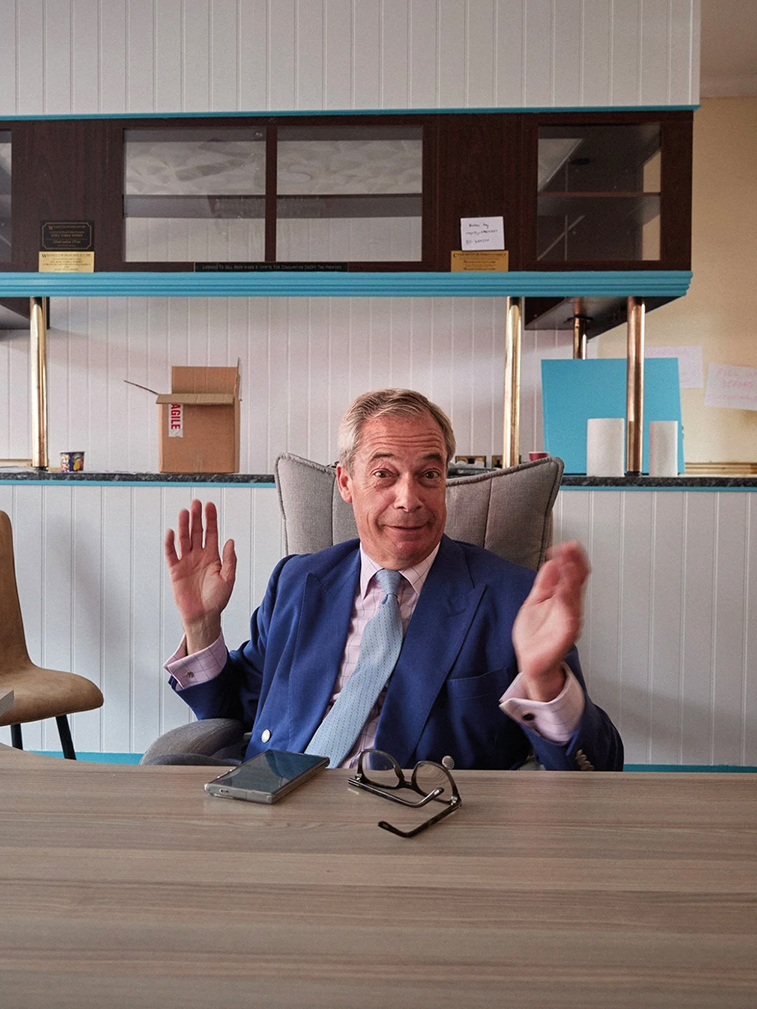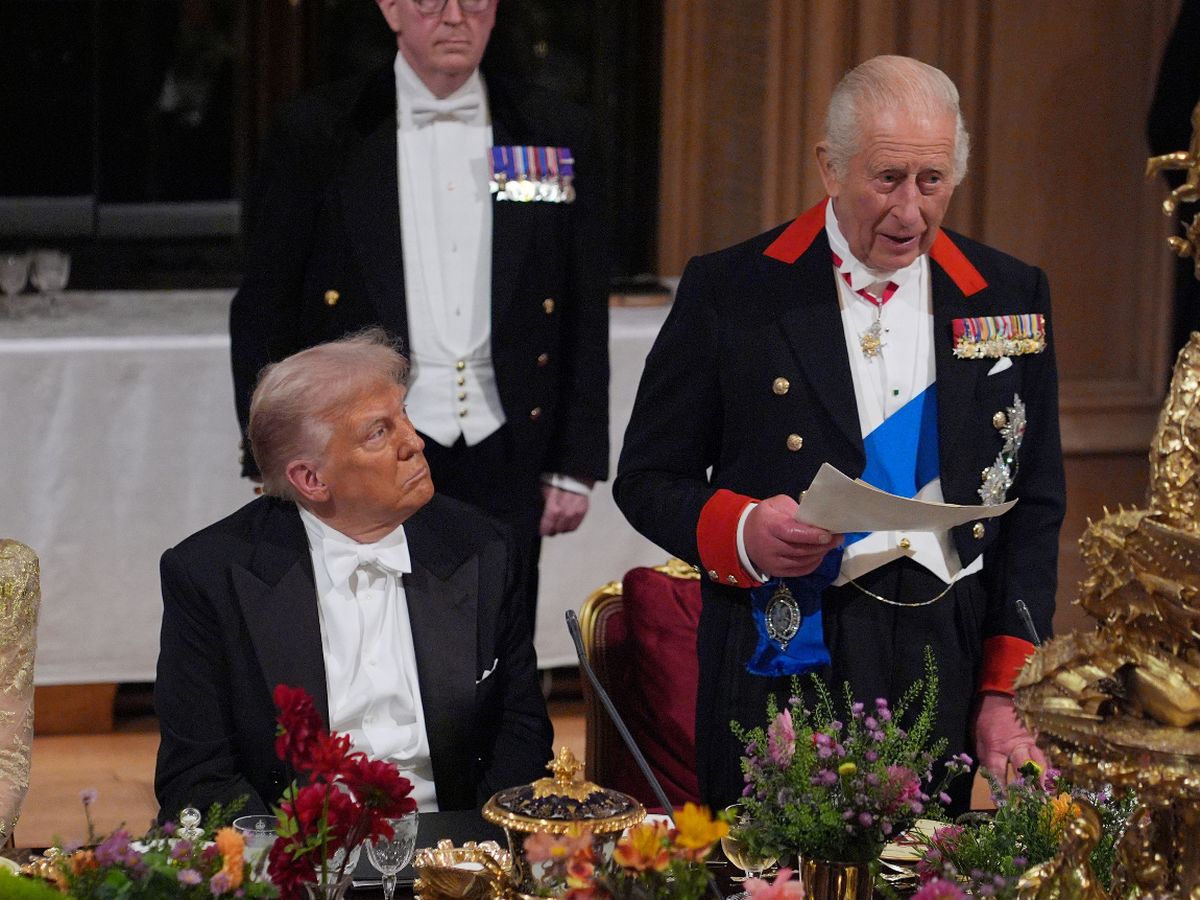By Andrew Marr
Copyright newstatesman

Labour in Liverpool this year will be different and dangerous. We have witnessed struggles for the soul of the party before: Denis Healey in 1981 being shouted down before beating Tony Benn for the deputy leadership by, as he said, “a hair of my eyebrow”; a white-faced, impassioned Neil Kinnock denouncing Militant, to scenes of uproar, four years later.
Left against right, heart against head – today this may seem familiar. But those confrontations took place in opposition. Harold Wilson and Jim Callaghan had tough conferences in power but neither of them faced the existential challenge Keir Starmer confronts. What is happening now has never happened before.
Starmer faces not the neo-Marxists of the 1980s but a “soft left” challenge led by Andy Burnham, fighting on policies those earlier leaders might themselves have approved. Burnham, who has evolved hugely in Manchester, has the charisma, self-confidence and optimism his deflated party down in London could use.
But switching prime ministers would be incredibly difficult. It would derail the Budget, spook the bond markets and could provoke a general election early next year.
Everybody had been focusing on the possibility of Andrew Gwynne resigning his seat of Gordon and Denton, triggering a by-election in which Burnham could stand, but the MP has now declared his determination to stay. Even if another MP stands aside to create such an opportunity, there is the problem of the National Executive Committee.
If it allowed Burnham to stand, it would be firing the starting gun on a mayoral election for Manchester. With its population of nearly three million, that could cost Labour hundreds of thousands of pounds. Then there is the possibility of losing Manchester, with its devolved policing power, to Reform – a cataclysm on the scale that faces Labour next year in Wales.
Suppose, however, those hurdles are surmounted, and Burnham gets an autumn by-election. He is a Labour candidate and yet, in some sense, he is running against the leader of the Labour Party. How does that work?
Skip over it, though, and assume Burnham wins a by-election, despite a massive pile-on by the media against what they would describe as a careerist dodge, and an unnecessary contest. He gets to Westminster and obtains (and I don’t think this would be difficult right now) the support of the 80-plus MPs required for a formal challenge to the Prime Minister. If Starmer stands down, one of two things could happen, both very bad for the government and the country.
Possibility one: another candidate takes on Burnham. Wes Streeting would surely want his chance, and a middle-road candidate such as John Healey might be put up with the backing of the payroll vote. There would then be a 12-week leadership election. All normal government activity freezes for the duration. What would happen to the Budget, under a chancellor whose own future was in immediate doubt? Would it be possible to pass one?
Throughout this period, Burnham, as the prime minister in waiting, would be asked: who will be your chancellor? What will your wealth tax be? On whom? At what rate? You say you want to change the fiscal rules: how, exactly? These are difficult and dangerous questions for him to answer – for every word on tax gets an evader-response in the real world, while the vulture markets are watching.
The only way to avoid this period of uncertainty and instability is possibility two: Labour MPs deliberately dodge a leadership vote by refusing to cluster around any alternative – a quiet parliamentary coup, excluding the wider party – and Burnham is declared prime minister without a contest.
But what about legitimacy? We would then have a new prime minister who had not faced the country in a general election, enacting a manifesto the country had never approved. Boris Johnson responded to a similar situation by calling a quick election. Liz Truss did not. In neither case did the coup take Britain into calmer waters or happier times.
Fast-forward further: Britain’s deeper problems continue and Prime Minister Burnham, facing a media just as venomous towards him as it had been towards Starmer, suffers awful results in the May 2026 elections. At that point, wouldn’t pressure for a swift general election become irresistible? If so, I think we can guess the result.
Although a Burnham march on the soft south would be a quite fabulous moment for British journalism, the perils are so deep, I am sceptical about it happening. Labour would be better off focusing on its even deeper problem, which is nothing less than its lack of a comprehensible economic philosophy.
Blue Labour seized the imagination of many. Its focus on workers and wages, the protection of borders and patriotism has influenced half the cabinet and could offer a progressive alternative to right-wing nationalism. But the other part of Blue Labourism was always economics and the urgent need to rebuild industries at home.
Somehow, under the pressure of events, this half has fallen away. The optimistic neoliberalism of the Blair period has been shredded by the rise of China, American protectionism and the turn of Western working classes towards authoritarianism. And yet the British economy is not well placed for a world of tariffs – too open, too small, too unproductive.
Into the gap has come what we saw earlier this month with the Trump visit, a falling back on US technology and corporate power to provide the productivity and investment to save us. Peter Mandelson in Washington was an ardent persuader for this.
But as the New Statesman has argued consistently, dependence on the US in an era of selfish mercantilism and bully mega-companies is not a strategy. So, what should be the essence of a refreshed Labour economics? As the battle for the party’s soul is played out in Liverpool we will see a tax-more, borrow-more “soft left” agenda squaring up against… well, against what? We don’t even have a name for it. The man himself says there is no such thing as Starmerism. As described above, it’s not quite Blue Labour. Is it the old Labour right? Yes, there has been nationalisation of rail and steel, and Thames Water may be next. There is the Rayner workers’ rights agenda. But the tech bros’ growth agenda, which will form much of Starmer’s speech after the US deals, hardly has a Union Jack flying from it. Keir Starmer talks well about the case for progressive patriotism: but where is the economics?
There is a strange vacancy in this policy area in which any successful government needs to be strongest. We have a short-term, pursed-lip Treasury orthodoxy, focused on savings. It is increasingly hard to put your finger on an optimistic Labour economics. And if you can’t name something, it’s hard to win an election on it.
There are signs of a better way forward, one that is not factional. It is based on the simple idea that we need to grow more, bigger British companies. In Torsten Bell, the former boss of the Resolution Foundation now in charge of preparing the Budget under Rachel Reeves, this idea may finally have found a quiet champion.
What is needed today is not short-term cuts, but long-term investment. In a significant letter to the Financial Times on 15 September, Gus O’Donnell, the former cabinet secretary, and Jim O’Neill, the former commercial secretary to the Treasury, plus a group of stellar economists, warned of British under-investment producing “a vicious cycle of stagnation and decline”. This call to arms from some of the sharpest and most alarmed members of the British establishment needs wider circulation. They argue that the challenge “cannot be met by the private sector alone. It requires a step change in levels of public investment.”
In a tilt at the Tory years, they say Labour “has inherited spending plans that imply substantial real-terms cuts in public investment over the current parliament. We do not see how the planned ‘decade of national renewal’ can take place if these cuts are delivered.
“To follow through on these plans would be to repeat the mistakes of the past, where investment cuts made in the name of fiscal prudence have damaged the foundations of the economy and undermined the UK’s long-term fiscal sustainability.”
If this was simply neo-Keynesian expansion economics at a time of vulture bond markets, you might say, good luck with that. But all around there is a new growth economics, based on public investment and localism, around which Labour ought, even at this dire moment, to be able to unite.
In its “growth trilogy” reports, the Purposeful Company calls for far more investment in Britain, including by UK pension funds, to stem the loss of British corporate achievements to foreign (American) owners. Our failure to grow our best companies was a big part of the meaning of the recent Trump presidential visit.
We have a great energy, talent and experience; we should not let it blow out to sea. Will Hutton, co-founder of the Purposeful Company, argues the UK is becoming an incubator of great companies – for other countries. In the past decade, he says, 2,600 promising young British companies have been acquired by overseas rivals.
A sharper, clearer growth strategy need not be hostile to the thinking of Burnham or Manchester Labour – far from it. Vigorous local leadership in building and sustaining companies is called for by a wide range of thinkers, including Andy Haldane, the former chief economist to the Bank of England, who has been studying the East Midlands and says: “We need a story of growth that isn’t aridly told from 30,000 feet but speaks to the lived experience and to the prospects and opportunities of workers in the everyday economy.”
Strikingly similar messages are coming from new reports by Blue Labour thinkers under the Britain Renewed banner, from Josh Simons, the Makerfield MP now in the Cabinet Office, to Burnham himself. And the names matter. If Bell and Simons, who are inside government, and Burnham, who is outside it are speaking the same language of a new Labour economics, then where is the overwhelming need for civil war?
[Further reading: Inside the Tony Blair Institute]



